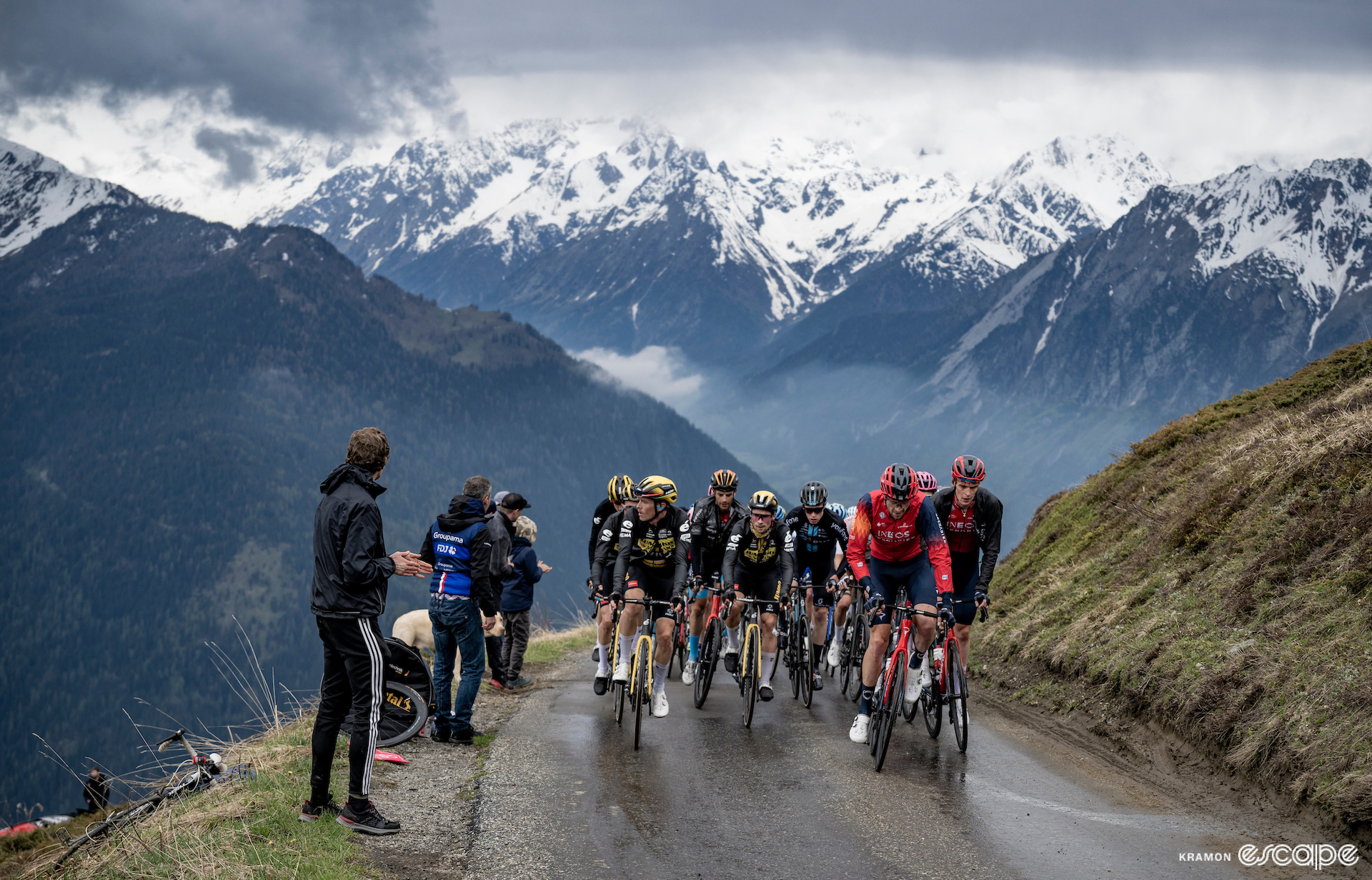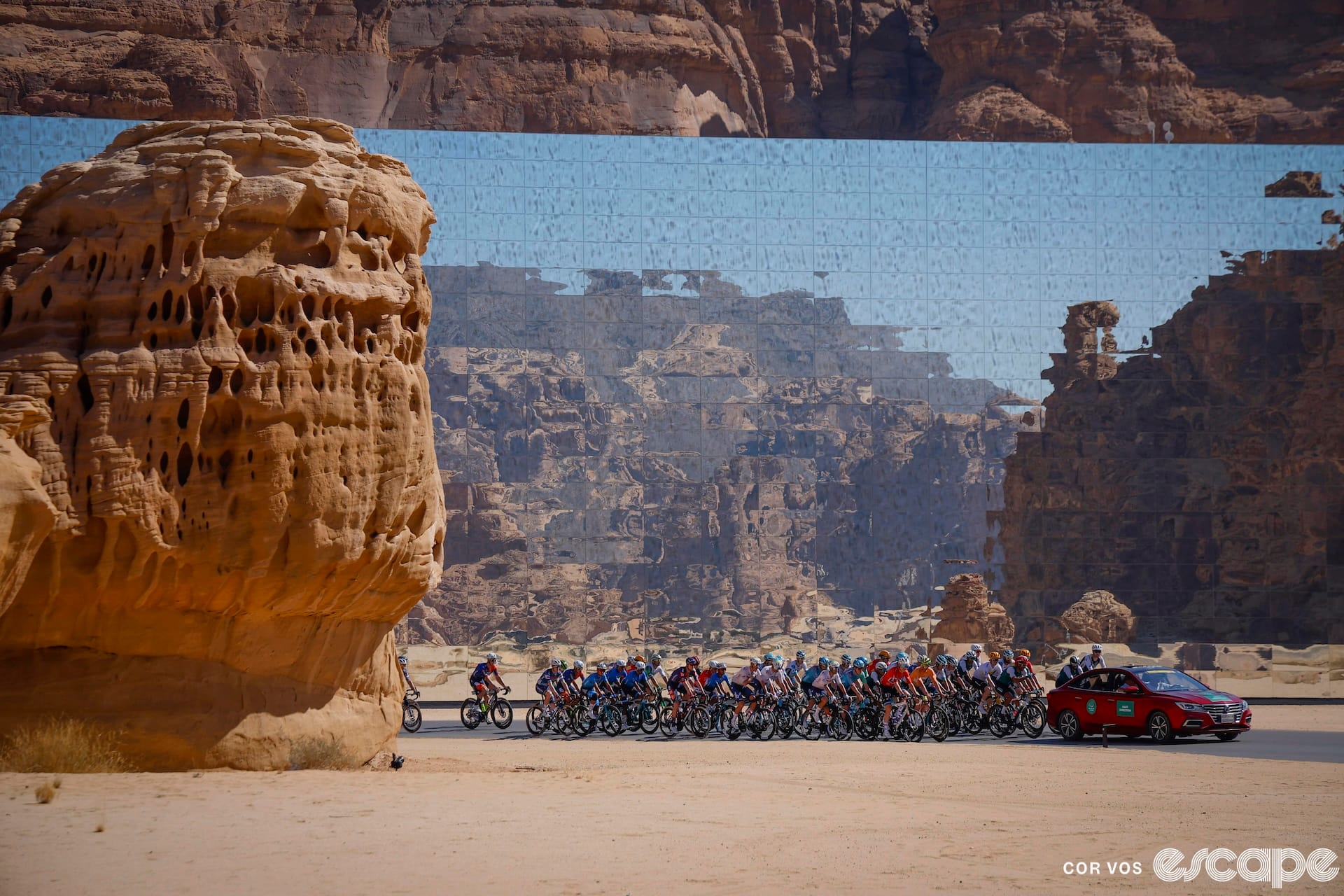The current men’s WorldTour system is done, broken, kaput. There are too many races, so they cannot all attract the best riders, and the points system is too arcane. There are avoidable calendar clashes and there’s no sensible, year-long competition.
The sport’s premier metric of success, the UCI World Ranking, means next to nothing to fans, riders, and even teams and sponsors. It ends up trying to do it all, only to tell us what we plainly know: that either Wout van Aert or Tadej Pogačar is the best all-round freak.
Example: Remco Evenepoel wins Liège-Bastogne-Liège. No regular cycling lover knows how many points that netted him – let me just consult page 5 of the UCI’s memorandum and check: 800.
An outsider might assume that all WorldTour-categorised races would use the same points system. Or that maybe there’s a couple points systems, given the calendar includes stage races and one-day events. Wrong! We have a top tier with six different point weightings. Pro cycling, what are you like?
You can see the rundown here, but to summarise the points for first place: 1,300 for the Tour de France, 1,100 for the Giro and Vuelta, 800 for a Monument, 500 for GP Québec, 400 for Strade Bianche (yes, only 400 for a cult race some fancy to be the sixth Monument), and 300 for Omloop Het Nieuwsblad.
At times, our sport resembles a secret society that relies on knowing the complicated, special handshake. It needs to connect far better to both the long-time aficionado, the casual fan, and the total newbie. Perhaps, most crucially, it needs to connect with TV broadcasters to reach all of the above.
A skinnier, simplified calendar with a coherent ranking makes sense. Improving the clarity and visibility of pro cycling makes it both more attractive and financially stable.
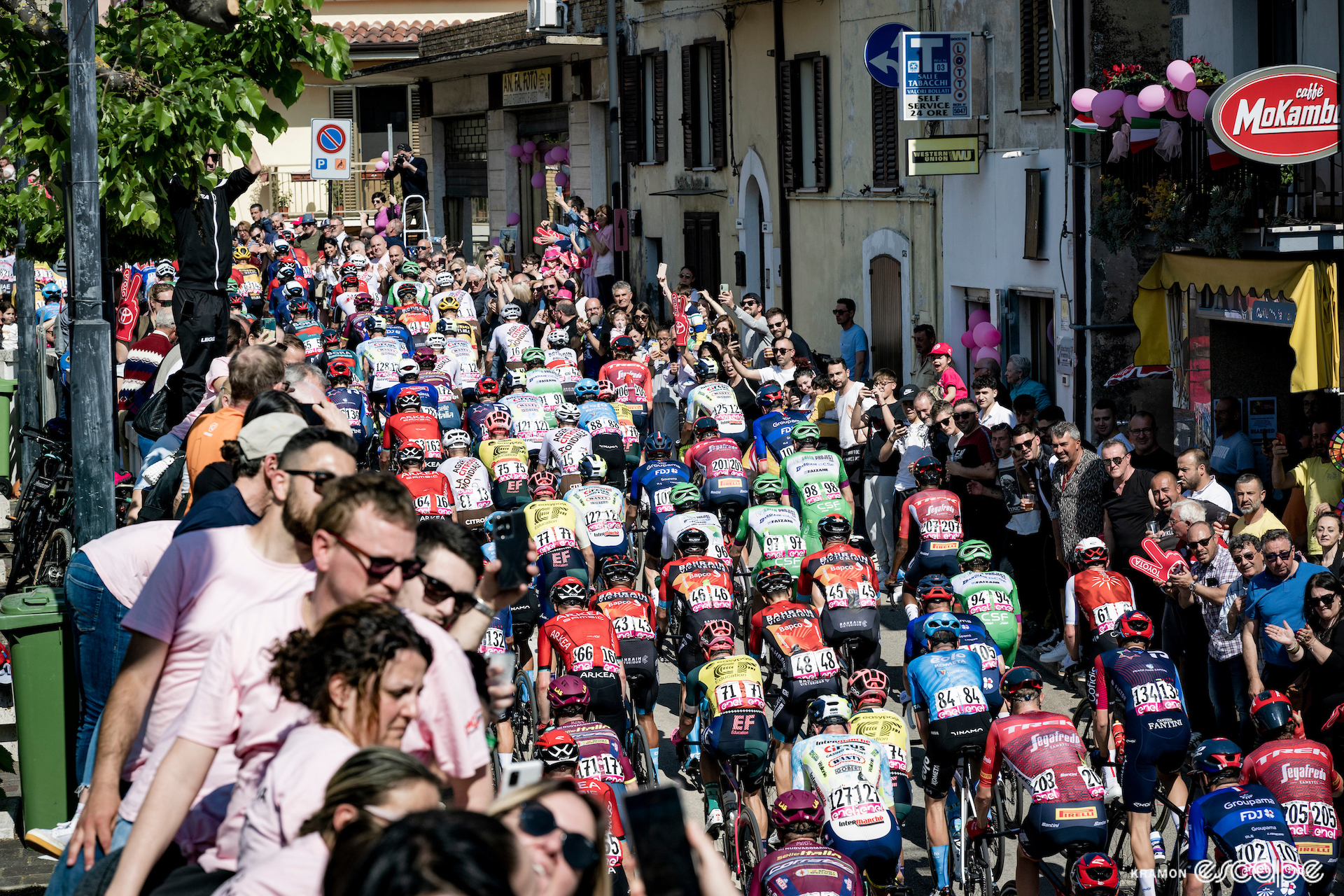
Nobody said it’s an easy fix. This is not Formula 1 (20 drivers, 10 teams, 24 globetrotting grand prix.) Cycling is endearingly weird and resists easy measurement or categorisation. A season with cobbled races, flat ones, hilly ones, mountainous ones, time-trials, week-long stage races, and three-week Grand Tours is like putting apples, oranges, brie, chocolate, cucumber, liquorice, and pretzels together in one giant, strange salad. Little wonder the WorldTour calendar is bloated.
But to continue this over-egged food analogy, the COVID pandemic showed that, when required, the calendar is a moveable feast.
I’ve had a go at coming up with alternative; something in the middle between realistic changes and bold thinking. It’s not about reinventing the wheel or doing away with historic races; it’s just about having a smaller system with more common sense. Everyone in the sport would benefit.
The big changes
- It doesn’t work having a single ranking that shoehorns everything into one, so let’s stop trying. I propose three concurrent series throughout the year: a Stage Race Series (of 11 races, including three Grand Tours), a Flat Series, and a Hilly Series (seven one-day races each). Not the sexiest names, but at least they’re clear and we come away at the end of the season knowing who has been the best flat racer, the best stage racer, and the best hilly one-day racer.
- A more coherent and equal points system. The top 20 in each race scores points, aside from in the Grand Tours, where it’s top 30. The Grand Tours also have a higher points weighting than week-long stage races. (In Grand Tours and stage races, flat stage wins contribute to the Flat Series, hilly or mountainous ones to the Hilly Series.)
- On screen, it’s difficult to over-communicate. During the last hour of every race, the points they’re racing for should be put up regularly. And after every race, the new, updated series overall graphic would be put up and discussed (something that’s never happened with the UCI World Ranking).
- There’ll be annual relegation of two of the 18 competing teams, with two squads being promoted from a second division calendar of similar size.
| Points allocation for final position in Flat Series, Hilly Series, and Stage Race Series races | ||||
| Non-Grand Tour events | Grand Tours | |||
| Position | Points | Position | Points | |
| 1st | 100 | 1st | 230 | |
| 2nd | 80 | 2nd | 190 | |
| 3rd | 60 | 3rd | 155 | |
| 4th | 45 | 4th | 125 | |
| 5th | 40 | 5th | 100 | |
| 6th | 35 | 6th | 80 | |
| 7th | 30 | 7th | 65 | |
| 8th | 25 | 8th | 55 | |
| 9th | 20 | 9th | 50 | |
| 10th | 15 | 10th | 45 | |
| 11th | 10 | 11th | 35 | |
| 12th | 9 | 12th | 30 | |
| 13th | 8 | 13th | 25 | |
| 14th | 7 | 14th | 20 | |
| 15th | 6 | 15th | 15 | |
| 16th | 5 | 16th | 14 | |
| 17th | 4 | 17th | 13 | |
| 18th | 3 | 18th | 12 | |
| 19th | 2 | 19th | 11 | |
| 20th | 1 | 20th | 10 | |
| 21-22 | 8 | |||
| 23-24 | 6 | |||
| 25-26 | 4 | |||
| 27-28 | 2 | |||
| 29-30 | 1 | |||
| Points allocation for stage results | ||||
| Non-Grand Tour events | Grand Tours | |||
| Position | Points | Position | Points | |
| 1st | 20 | 1st | 40 | |
| 2nd | 15 | 2nd | 30 | |
| 3rd | 10 | 3rd | 25 | |
| 4th | 8 | 4th | 20 | |
| 5th | 6 | 5th | 15 | |
| 6th | 5 | 6th | 10 | |
| 7th | 4 | 7th | 9 | |
| 8th | 3 | 8th | 8 | |
| 9th | 2 | 9th | 7 | |
| 10th | 1 | 10th | 6 | |
| 11th | 5 | |||
| 12th | 4 | |||
| 13th | 3 | |||
| 14th | 2 | |||
| 15th | 1 | |||
No filler, all thriller
My calendar cuts the current 35-race men’s WorldTour calendar down to 25. You might not bemoan the absence of events such as the Dwars door Vlaanderen, Tour de Pologne, Tour de Romandie, Tour of Guangxi, and the Cadel Evans Great Ocean Race. I don’t disparage such races, but going down to a second tier would not be their death. They either don’t attract the best riders or the best riders going all-out.
There are no clashes or filler in this proposed league – it’s all killer. That’s meant tough decisions: no warm-ups like Omloop Het Nieuwsblad or E3 Saxo Classic. No Flèche Wallonne, nuance-light, won the same way every time and lesser to its Ardennes amigos.
Races like Classic Brugge-De Panne and BEMER Cyclassics are there. That’s to offer something for the sprinters - they can’t be excluded.
I’d also move the Ardennes Classics to late September so we have a hilly Fab Fortnight in the autumn, including Il Lombardia. This regulates the service in a currently frontloaded, unbalanced spring season.
It’s about selling the sport better and spacing it out. In the same way that you wouldn’t have the French Grand Prix and Italian Grand Prix held concurrently, Paris-Nice and Tirreno-Adriatico would be separated. I’d put Tirreno in April, pre-Giro.
In the same vein, there’s no Catalunya or Dauphiné at all. There’s no point having clashing races which divide where the best compete.
Lastly, there’s no ranking points for the Olympics or World Championships in this proposed competition. Paris Saint-Germain didn’t get Ligue 1 points for Lionel Messi winning the World Cup with Argentina, did they?
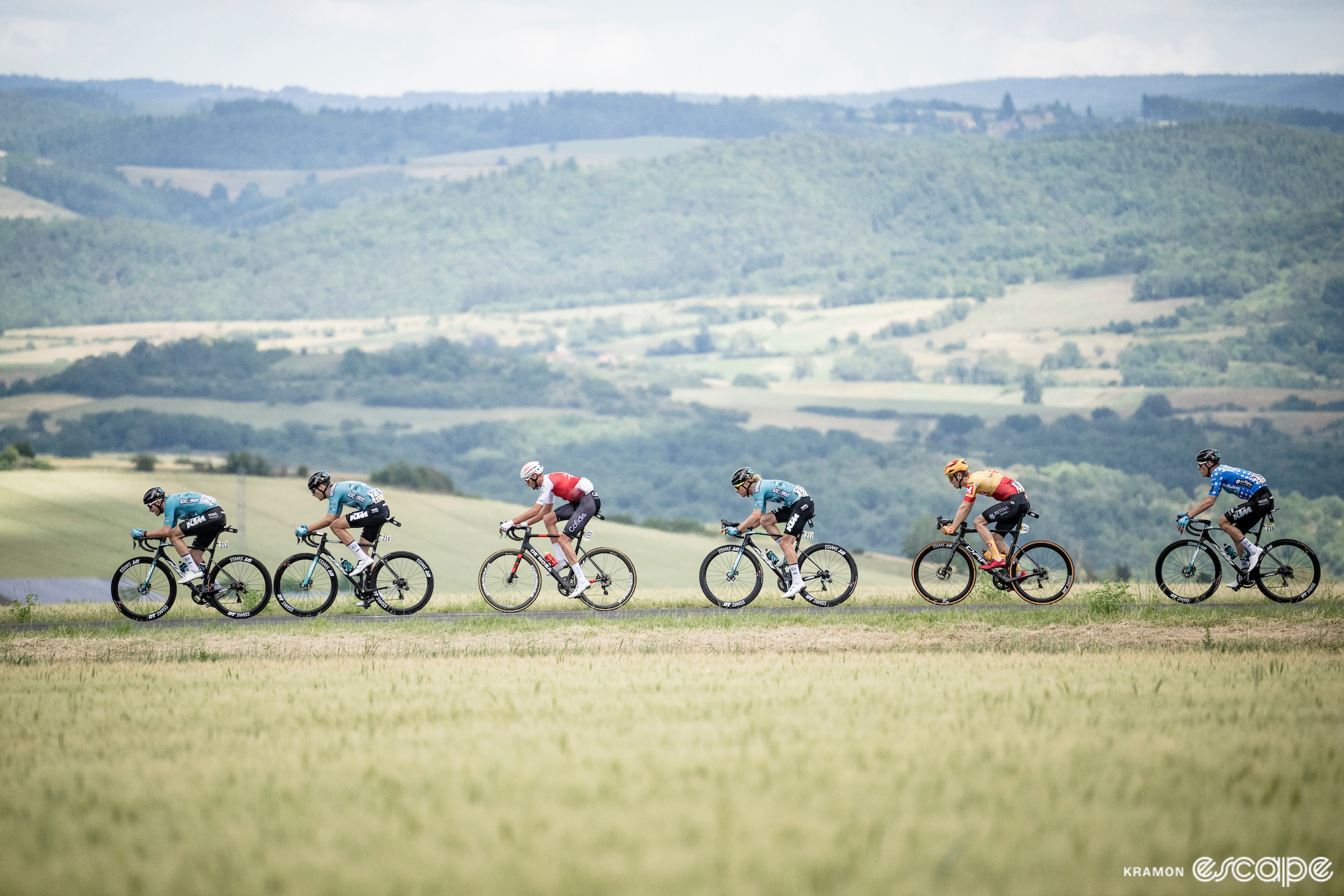
Internationalise the WorldTour
The clue’s in the name “WorldTour”. More global territories should see the best riders regularly. Of course, cycling remains Eurocentric. Growing the sport abroad is deep, gradual, and infrastructural, not something that can be amended by sending 170 bike riders to an annual, far-flung event.
I’d include February’s Tour du Rwanda, the African country set to host the 2025 World Championships, and throw in a fictional September US stage race. It makes sense to grow the sport in North America, especially after taking the peloton across the pond for two Canadian one-day races.
The aim is to command undivided attention from fans and give an opportunity for the best riders to fight the best regularly. This doesn’t happen often, especially in stage races: Vingegaard versus Pogačar at Paris-Nice was a break from the norm. (PS. I’d have riders keeping the same race number throughout the season. This no-brainer would be merchandising gold dust too. A Pogačar number 1 could become as emblematic as Michael Jordan’s 23.)
We see this better in the women’s sport: Van Vleuten versus Vollering versus Longo Borghini habitually, creating excitement, points of comparison, and a season-long competition. (Though the women’s WorldTour is arguably growing too fast, with a relentless 27-race calendar. We’re working on a similar thinkpiece for reimagining the women’s WorldTour too.)
However, there are limits. It’s not realistic to expect top riders to do most WorldTour stage races or one-day races. With time to rest, recover, and do altitude training, Pogačar and the stars do a maximum of five stage races a year.
How to get them to do all (or most) races in a series? Money. To put a pragmatic twist on the famous Field of Dreams line, if you build it with the right financial incentives for riders and teams to do every race in the series, they will come.
It’s about big money prizes, attractive packaging, publicity and marketing, getting every race on accessible TV networks and (the holy grail), lucrative media rights revenue distribution to squads.
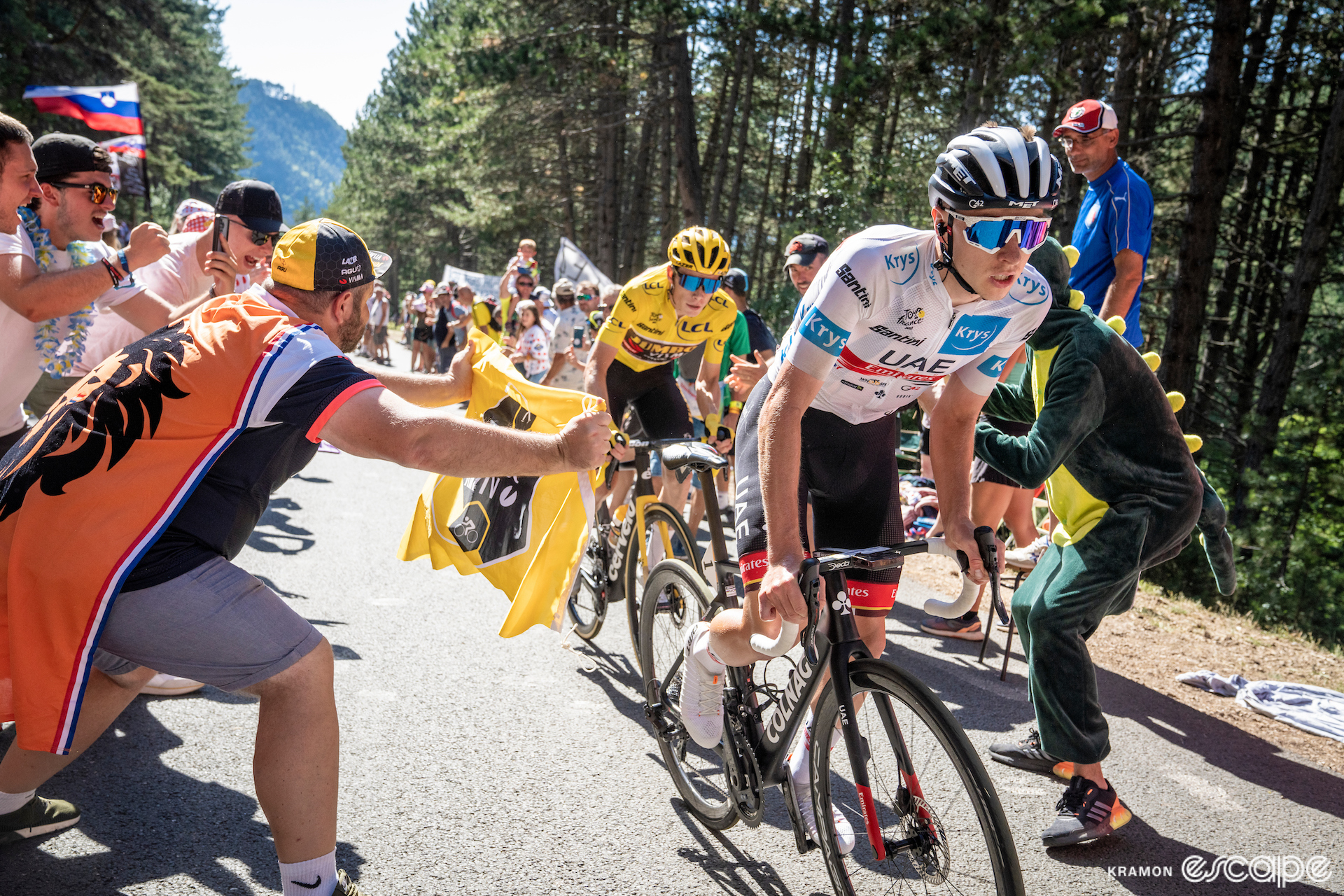
Finish with a bang, not a whimper
I wouldn’t include the Tour of Guangxi, the current final WorldTour race, in my proposed calendar. I appreciate China is a potential growth market for cycling, but the race is like the untouched bottle of spirits at the end of a house party. Everyone’s tired and disinterested; nobody’s drinking it.
I would instead offer double points for the final races in the Stage Race, Hilly, and Flat series – the fictional US stage race, Il Lombardia, and Paris-Tours – akin to the Diamond League Grand Final in athletics’s leading season-running competition. That adds more interest post-Tour de France and keeps a balance between incentivising a final showdown without devaluing the other races.
***
I went down a rabbit hole with this. Spreadsheets, calculations on the back of envelopes, tweaks, and re-tweaks. And I’ll concede that coming up with a fair, viable system is harder than it looks. Cycling has so many idiosyncrasies. A perfect system might be impossible.
What do you think? Have I been too sweeping or have I not changed enough? How would you improve the current men’s WorldTour schedule? Have your say in the comments below.
Andy's proposed men's WorldTour calendar
Key: SR = Stage Race, HR = Hilly Race, FR = Flat Race
January
- Tour Down Under (SR)
February
- UAE Tour (SR)
- Tour du Rwanda (SR)
- Strade Bianche (HR)
March
- Paris-Nice (SR)
- Milan-San Remo (FR)
- Classic Brugge-De Panne (FR)
- Gent-Wevelgem (FR)
April
- Ronde van Vlaanderen (HR)
- Paris-Roubaix (FR)
- Tirreno-Adriatico (SR)
May
- Eschborn-Frankfurt (FR)
- Giro d’Italia (SR)
June
- Itzulia Basque Country (SR)
- Tour de Suisse (SR)
July
- Tour de France (SR)
August
- (World Championships*)
- BEMER Cyclassics (FR)
- Vuelta a España (SR)
September
- GP Cycliste de Québec (HR)
- GP Cycliste de Montréal (HR)
- Fictional US stage race (SR)
- Amstel Gold Race (HR)
October
- Liège-Bastogne-Liège (HR)
- Il Lombardia (HR)
- Paris-Tours (FR)
*Not eligible for this classification
Did we do a good job with this story?

